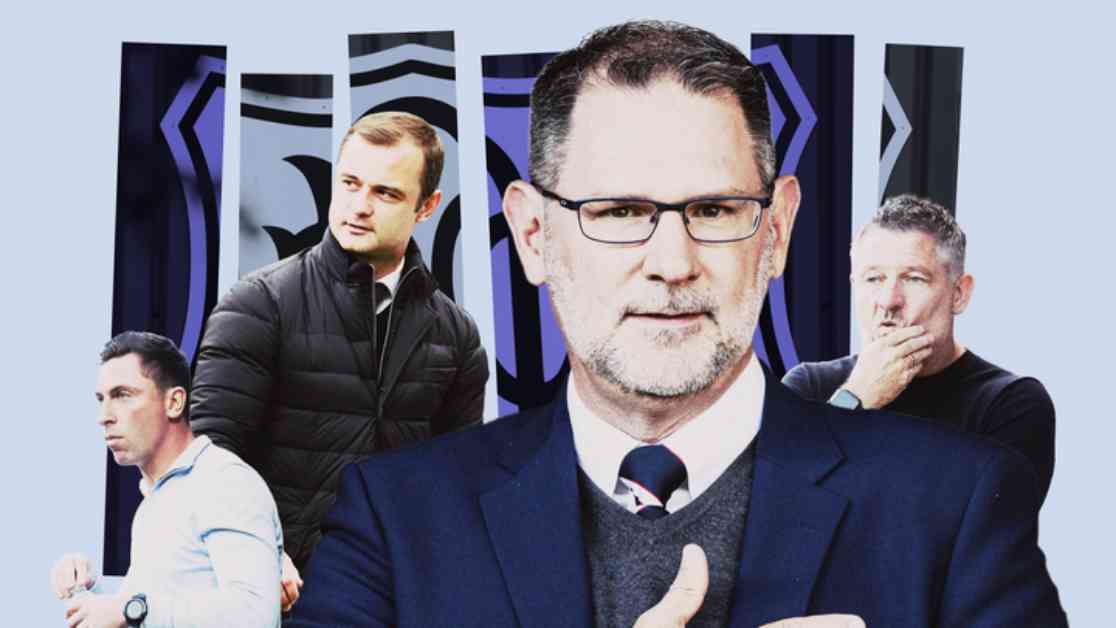Dundee’s Managerial Merry-Go-Round: A Rollercoaster of Decisions
Dundee football fans always feel a bit patronized when experts try to dictate their emotions. When a coach gets the boot, especially at a smaller club in the Premiership, the common question is, “What were they expecting?”
So, let’s talk about Tony Docherty’s recent sacking as Dundee manager. At first glance, it seemed like a harsh move, with the news dropping on a Monday morning. The season hadn’t been great for Docherty and the team, finishing in 10th place, far below expectations. But let’s be real, Dundee isn’t Aberdeen, Hibs, or Hearts. They’ve been up and down the ranks for years. After a top six finish last season, Docherty probably thought he had some goodwill left.
Despite facing challenges like key player injuries, Docherty couldn’t ignore the fact that his team gave up a whopping 77 goals, the worst in the Premiership. On the bright side, they scored 57 times, only trailing behind Celtic, Rangers, and Hibs. This performance was enough to avoid relegation, but it wasn’t enough to save Docherty’s job.
The Dundee defense had a tough time keeping the ball out of the net, resembling PC Murdoch trying to catch mischievous kids. Injuries to important players like Captain Joe Shaughnessy, Jordan McGhee, Antonio Portales, and Clark Robertson didn’t help either. The constant goalkeeper changes early in the season didn’t do them any favors either.
Despite the setbacks, Dundee managed to find the back of the net more often than not. Docherty did what he could to keep the team afloat, but it wasn’t sufficient in the eyes of the management. The decision to let him go might seem harsh to many fans, considering the circumstances.
Now, Dundee must hunt for a new manager who can bring stability to the club. The revolving door of managers at Dens Park isn’t a good look for Managing Director John Nelms and Chairman Tim Keyes. They’ve gone through nine managers in just 11 years, which is quite a record.
After Docherty’s departure, the spotlight is on potential candidates like Shaun Maloney and Scott Brown, both former Celtic players. While they bring interesting prospects to the table, fans might have doubts about their lack of experience compared to Docherty.
Maloney’s short stint at Hibs ended abruptly, despite being praised as a promising young coach. His quick exit raises questions about the club’s commitment to long-term projects. If Dundee decides to go with Maloney, they need to provide him with the necessary support and time to implement his ideas.
In conclusion, Dundee faces a crucial decision in selecting their next manager. Stability in the dugout is essential for the club’s future success. Whether they opt for a seasoned coach or a fresh face like Maloney, the key is to offer unwavering support and patience for their vision to take shape. Only time will tell if Dundee can break free from their cycle of managerial turmoil and establish themselves as a force to be reckoned with in Scottish football.
































